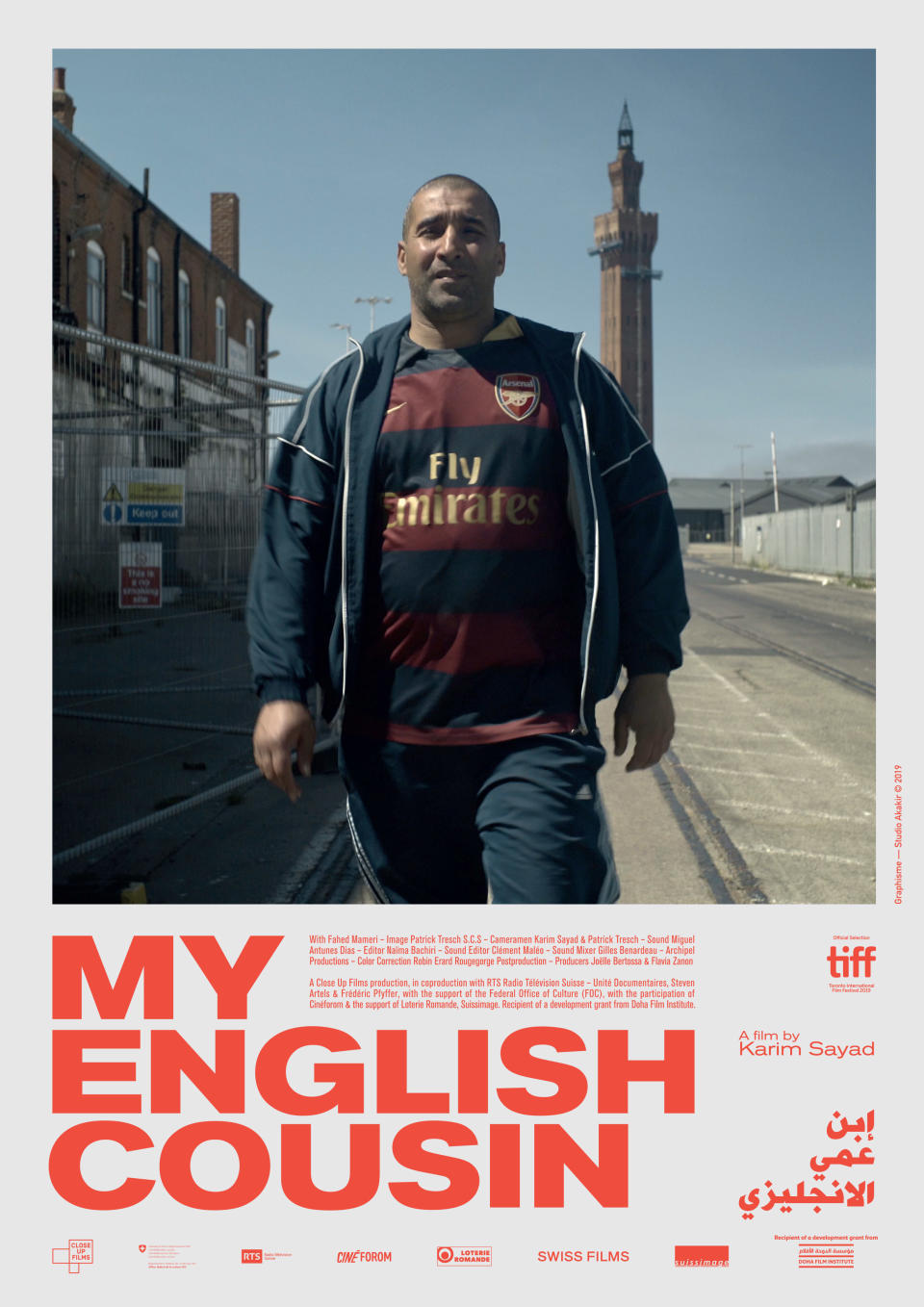Director Karim Sayad on Immigration Story ‘My English Cousin,’ Playing in Toronto Docs

Click here to read the full article.
In 2017 Swiss filmmaker Karim Sayad’s debut documentary feature “Of Sheep and Men” impressed at Toronto, and the director is back this year with his latest, “My English Cousin.”
In 2010, Algerian-born Fahed moved to the U.K. with little by way of English language skills or a plan but overflowing with ambition. In 2018, besieged by midlife crisis and homesickness, his cousin Sayad began recording Fahed as he shuffled between his crowded home and full-time jobs at a kebab shop and bread factory before deciding that after nearly two decades, he wants to go back to Algeria.
More from Variety
'Resin' Director Daniel Borgman Develops 'The Shadows,' 'The Light' With Adomeit Film (EXCLUSIVE)
Film Factory Snags Toronto Platform's 'Moneychanger,' Drops Trailer (EXCLUSIVE)
Wayne Wang's 'Coming Home Again' to be Handled by Asian Shadows (EXCLUSIVE)
Some ideas are better on paper however, and Fahed quickly realizes you can never really go home.
The film, produced by Close Up Films in association with RTS, also gives an on-the-ground look at both Brexit and recent anti-government protests in Algeria, and how those movements have affected hardworking, everyday people looking to make changes in their lives.
Sayad talked with Variety ahead of the film’s Friday night premiere.
You visited Fahed when you were young and he was still new to the U.K., but I wonder what is your relationship with him is like as adults?
Fahed settled in England in 2000, in London at the time. I visited him two-to-three times then, I was 17 at the time, and discovered the hardships of all these new Algerian immigrants in Northern London. As adults, we share these memories of his first days in Europe and I still consider him a big brother.
What made you decide to get out your camera and start filming? When in your relationship did you realize that his was a story you wanted to tell?
I decided to begin shooting when he shared his desire to travel back to Algeria in 2016. I was interested in telling a migration story but from the perspective of someone wanting to go back. When he told me about his desire to go to Algeria to get married, I thought I had a good starting point.
Do you think his story is representational of those of other immigrants in the U.K.?
I think it’s representational of many immigrants from his social standing, and not just in the U.K.
Had both Brexit and the protests in Algeria already started when you began development on this film? And how did they alter the trajectory of this project as they unfolded?
Brexit had begun, the demonstrations in Algeria had not. Concerning Brexit, I quickly realized that Grimsby, the city he lives in, was representational of these formerly wealthy cities which lost everything due to globalization. I was interested in the fact that Fahed left a place to improve his life and ended up in Grimsby, considered by many in the U.K. as a dump. I also wanted to show to an Algerian audience that the U.K. is not the paradise they often imagine. So, concerning Brexit, it didn’t affect the shooting that much. Concerning the protests in Algeria, I wasn’t going to shoot then, but it was impossible to know Fahed was going and not go myself. I realized that for the film it added a layer of complexity by showing that both of his worlds were undergoing historical changes much bigger than him.
What is your intended audience for the film?
I never really ask myself that question. I think about a story and try to tell it hoping it will be understood by the most people possible. But, I think many people can identify with Fahed because we all have major choices in our lives. We all ask ourselves if we wouldn’t like to start again somewhere. Fahed’s story is not different, it just puts light on these big questions in specific social and cultural milieu.
Do you have a list of which festivals the film will be participating in?
After Toronto the film heads to Algeria’s Rencontres Cinematographiques de Bejaia, where the family will be able to see it. There are others planned, but we can’t announce them yet.

Sign up for Variety’s Newsletter. For the latest news, follow us on Facebook, Twitter, and Instagram.

